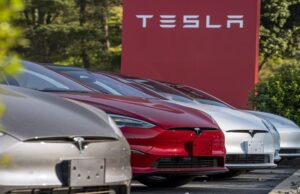
Editorial
Political economy may be an Adam Smith’s classical governance concept, which underscores the need for balancing governance structure with good politics and economics. The idea germinated in the fertile mind of one of the greatest economists of his time must have lost its sheen in modern times. Yet, there are an overwhelming number of experts feel that the term has a contemporaneous relevance to Africa.
The rationale of that argument is not far to seek. In the recent past, a number of states had gone on poll mode to elect heads of states including Uganda, Tanzania, Ghana, Ivory Coast, Mali and Burkina Faso. A few more countries will go to polls in the coming days and months. It could be a good case study for political scientists to discern why almost every election leads to violence not alone during the campaign trail but also even after the election results, which are contested on the ground that they were vitiated by fraud and other manipulations.
The impact of this violences on the African economy should be properly assessed. Apart from the loss of lives and property, months’ long violence and arson create huge economic losses. Thousands flee to the neighboring countries, straining the limited civic facilities there. Poverty, destitution, epidemics and unemployment take their toll on the people. According to the UN authorities, dislocation of people and their influx to neighboring countries compel them to channelize billions of dollars for the upkeep of refugee camps, which otherwise could have been used for developmental works.
Admittedly, Africa is making great strides in many directions. With the launch of African Continental Free Trade Area, the largest trade bloc in the world, massive preparations are underway to build capacities in many avenues for value adding to the continent’s primary products including minerals, agricultural produces, setting up manufacturing units, beefing up its tourism spots etc so as to create more employment and exports for the countries burdened with huge external and domestic debts. The World Bank estimates that compounded by the Covid-19 pandemic, the inflow of foreign investment particularly to Sub-Saharan Africa, where most of the poor people live, will be slowing down in the coming years. Violence and tensions that erupt periodically can further cause disruption in the flow.
These vicissitudes cannot be wished away as aberrations that occur only during elections. Tribal conflicts are very common in many parts of Africa. Such endemic situations should be addressed resolutely. Admittedly, there are no vanilla solutions to the systemic problems. Indeed, inclusive development is the best solution to such problems. It is true that in the recent years, oil and metals have created several millionaires if not billionaires in several countries in Africa. It is also a fact that such developments have created wide spread income disparities, which can ignite violence and arson triggered by frustrations and disappointments.
The next in importance is the realization that even those countries, which claim to be democracies, the institutions that have come up are in the autocratic garb. Faith in Constitution, Rule of Law and right to dissent without fear and prejudice are the pillars of a democratic system. It’s high time that organizations like African Union should get actively involved in ingraining democratic values in every political institution. With proper checks and balances, corruptions at every level, be it political or at the private sector, can be curbed or done away with. Transparency should be a cultural compulsion rather than being used as a rhetoric to serve political expediency. It is heartening to note some countries are making encouraging progress in that direction. Yet, making isolated progress will not help; it should be all pervasive. When that would happen is the crucial issue.
Should we differentiate between politics and economy in Africa, where most of the countries are transiting through either stage one or two of democratic process? Body of experiences dictates that both should blend together to embellish the edifice of democracy and importantly to ward off autocracies and any other clones which constrain human freedom and expression. Undoubtedly, such changes should come from within the continent and not superimposed from outside. That is the cardinal principle of a political economy.











